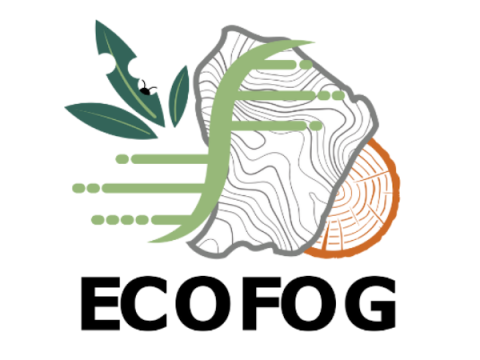EcoFoG (Ecology of Guiana Forests)
October 27 2025UMR (Joint Research Unit) AgroParisTech, Cirad, CNRS, INRAE, Université des Antilles et Université de la Guyane
General scientific orientation

The EcoFoG unit focuses on tropical ecology in the broadest sense. The unit’s project is to integrate different approaches in ecology and materials science in order to:
- understand the relationships between biodiversity and the functioning of tropical forest ecosystems, whether exploited or not, as they evolve under climatic and anthropogenic pressures;
- stimulate innovation in the use of forest resources in the context of this high biodiversity, taking into account the constraints of use linked to the tropical humid environment.
The UMR’s research work mainly involves the following disciplines: community ecology, ecological genetics, functional ecology, natural product chemistry, wood science, microbiology and botany.
The unit is structured around five areas
Plant Development and Functioning (DFP)
The aim is to gain an integrated understanding of all the processes and mechanisms that enable plants to develop, survive and reproduce throughout their life cycle.
Chemical and Molecular Evolution and Ecology (EECM)
This research area focuses on studying the processes that modulate molecular, chemical and trait diversity, all of which contribute to the performance of individuals in their environment.
Community Patterns and Assemblages (PAC)
The objective is to significantly improve understanding of the factors that influence species turnover in tropical rainforests.
Ecosystem Processes and Services (PSE)
This research area quantifies the consequences of global change on (1) ecosystem processes such as flows, dynamics, and trophic networks, and (2) ecosystem services provided by tropical forests and ecosystems resulting from changes in forest land use (plantations, agroforests, and agro-socio-ecosystems).
Bio-discovery, Uses, and Technologies (BUT)
This research area aims to contribute to the discovery of original and applied solutions based on local resources.

